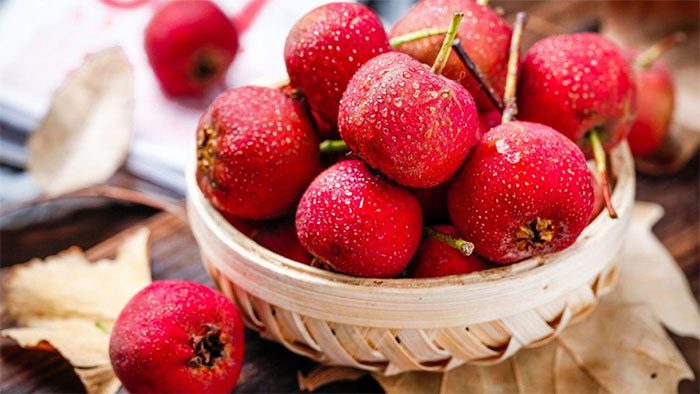With this affordable drink made from readily available ingredients at Vietnamese markets, anyone can detoxify their blood right at home.
Lotus Root Tea
Lotus root is a part of the lotus plant, with a creamy, crunchy texture that can be brewed into a delicious, nutritious tea that is easy to prepare. According to traditional medicine, lotus root has a sweet taste and a cooling property, helping to nourish the lungs. Therefore, lotus root tea is highly beneficial for lung health and treating respiratory diseases, along with many other health benefits. Below are the benefits of lotus root tea:
1. Nourishes Blood, Supports the Body, Eliminates Blood Clots
One of the most notable health benefits of lotus root is its ability to promote blood circulation and enhance oxygenation in the organs. The minerals copper and iron in lotus root support the production of red blood cells in the body. Regular consumption of lotus root helps reduce the risk of anemia and enhances blood flow, improving organ functionality and increasing energy levels.
Furthermore, the abundant potassium content in lotus root acts similarly to a vasodilator, helping blood vessels relax, which can aid in balancing electrolytes. Additionally, it helps prevent the negative effects of sodium in the blood.
 Lotus root tea promotes blood circulation and enhances oxygenation in organs.
Lotus root tea promotes blood circulation and enhances oxygenation in organs.
Moreover, potassium can reduce stiffness, constrict blood vessels, stimulate increased blood flow, and alleviate tension in the cardiovascular system. Overall, potassium plays a crucial role in nerve function, promoting blood transport and fluid balance to the brain.
Other nutrients found in lotus root, such as vitamin B6, niacin, pantothenic acid, riboflavin, and thiamine, are also very beneficial for cardiovascular health. Thus, drinking lotus root tea helps regulate the activity of homocysteine in the blood, reducing the risk of thrombotic and cardiovascular diseases.
2. Supports Weight Loss
Lotus root tea is effective for weight loss due to its high fiber content. Drinking this tea slows down the digestion of carbohydrates, reduces cholesterol levels, and enhances the weight loss process.
3. A Rich Source of Vitamin C, Anti-Aging Properties
Every 100g of lotus root can provide about 73% of the daily vitamin C requirement for the body. This antioxidant helps maintain strength and integrity in organs, vessels, and skin, and is crucial for collagen production.
Thus, regular consumption of lotus root tea can boost your immune system, prevent aging, and promote smooth, rosy skin. Additionally, vitamin C helps eliminate harmful free radicals from your body, reducing the risk of heart disease and cancer.
4. Good for Brain Health
The high vitamin B content in lotus root means that regularly drinking lotus root tea can enhance your mood, promote refreshment, and reduce stress.
 Lotus root is rich in B vitamins.
Lotus root is rich in B vitamins.
Important Notes When Drinking Lotus Root Tea
Like many other teas, drinking lotus root tea incorrectly can lead to undesirable effects. Therefore, when consuming lotus root tea, you should pay attention to the following:
- To avoid interfering with food digestion, drink lotus root tea at least 30 minutes before meals or about an hour after eating.
- Avoid excessive consumption of lotus root tea; do not replace water with it.
- When brewing lotus root tea, add a slice of ginger and a pinch of salt to maximize sweating. After drinking, allow your mind to relax and feel comfortable.
- Women during menstruation, pregnant, or breastfeeding; and those with a cold body condition should avoid drinking it.
Hawthorn Berry Tea
The hawthorn berry, also known as the Chinese hawthorn, is considered an important part of traditional Chinese medicine. Chinese herbalists use hawthorn berries to treat conditions such as congestive heart failure (CHF), arrhythmias, high blood pressure, low blood pressure, arteriosclerosis, and high cholesterol levels.
 The hawthorn berry, also known as the Chinese hawthorn.
The hawthorn berry, also known as the Chinese hawthorn.
Thanks to its rich and diverse nutritional composition, hawthorn berry tea offers numerous health benefits.
1. Reduces Blood Lipids
Drinking hawthorn berry tea can improve your blood lipid levels. In a study, consumption of hawthorn berries contributed to a reduction in total cholesterol, bad LDL cholesterol, and liver triglycerides by 28-47%. These are the two main types of fats in the blood that can lead to conditions like arteriosclerosis or plaque accumulation in blood vessels. If these plaques continue to build up, over time, they can completely block blood vessels, leading to heart attacks or strokes.
2. Supports Digestive Health
This berry is high in fiber, which helps support digestion by reducing constipation and stimulating the growth of beneficial gut bacteria. As a result, hawthorn berry tea is used to assist with digestive issues, especially stomach pain and indigestion.
3. A Rich Source of Antioxidants
Hawthorn berries contain a high amount of polyphenols, a powerful antioxidant compound primarily found in plants. Polyphenols neutralize unstable molecules (free radicals) when they are present at high levels. Additionally, the polyphenols in hawthorn berries offer many impressive health benefits, including preventing and reducing the risk of asthma, infections, type 2 diabetes, premature skin aging, cancer, and heart issues.
 Extracts from hawthorn berries can significantly reduce the presence of inflammatory compounds.
Extracts from hawthorn berries can significantly reduce the presence of inflammatory compounds.
4. Strong Anti-Inflammatory Properties, Effective Cancer Prevention
Chronic inflammation is considered a major cause of diseases such as asthma, type 2 diabetes, and some cancers. Recent animal studies have shown that consuming extracts from hawthorn berries can significantly reduce the presence of inflammatory compounds in the body, helping to alleviate inflammation and symptoms of asthma. With these research results, experts believe that supplements from hawthorn berries may provide anti-inflammatory benefits in humans.
5. Helps Lower Blood Pressure
In traditional Chinese medicine, hawthorn berries are often recommended to support the treatment of high blood pressure. They can provide natural vasodilatory effects, helping to relax constricted blood vessels in the body, thereby effectively reducing high blood pressure.



















































